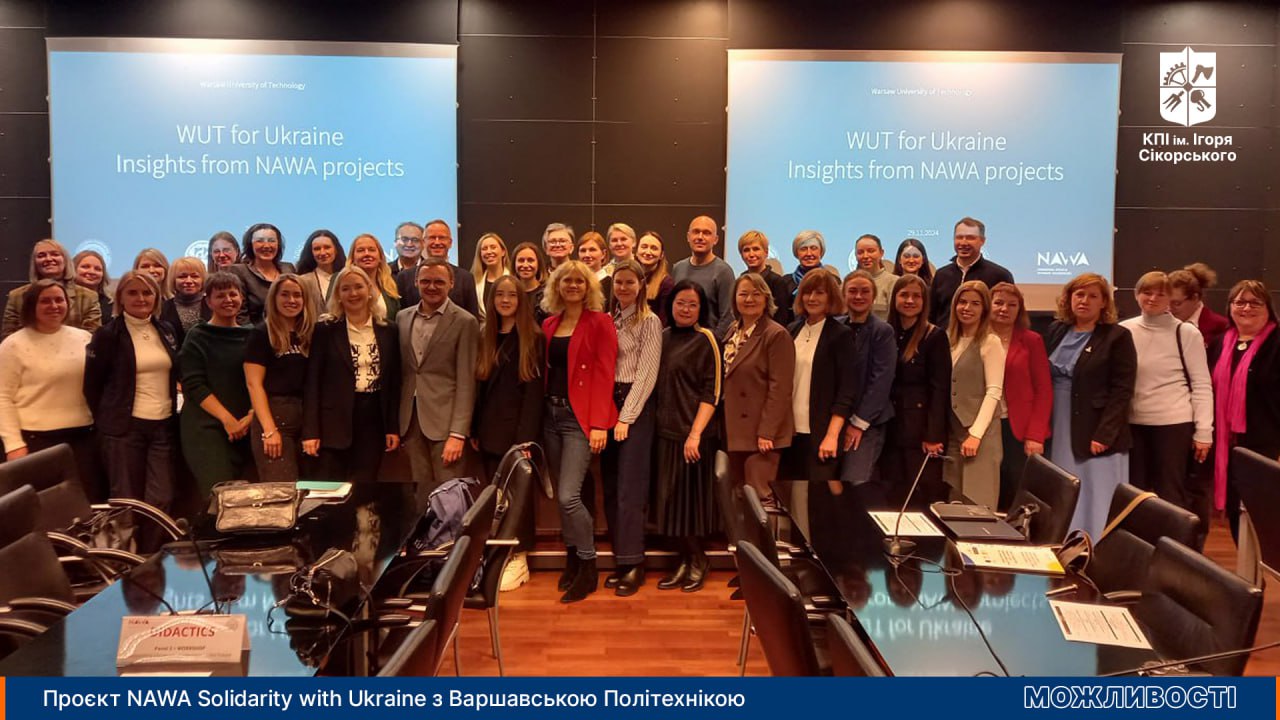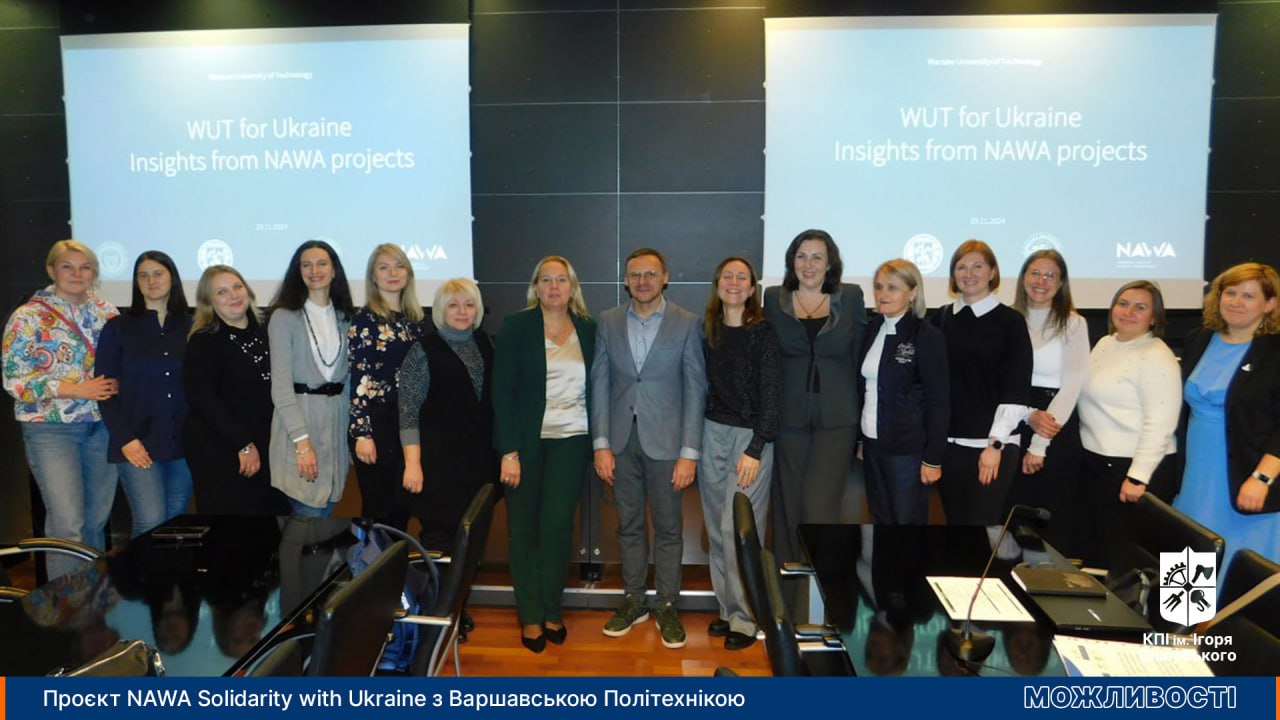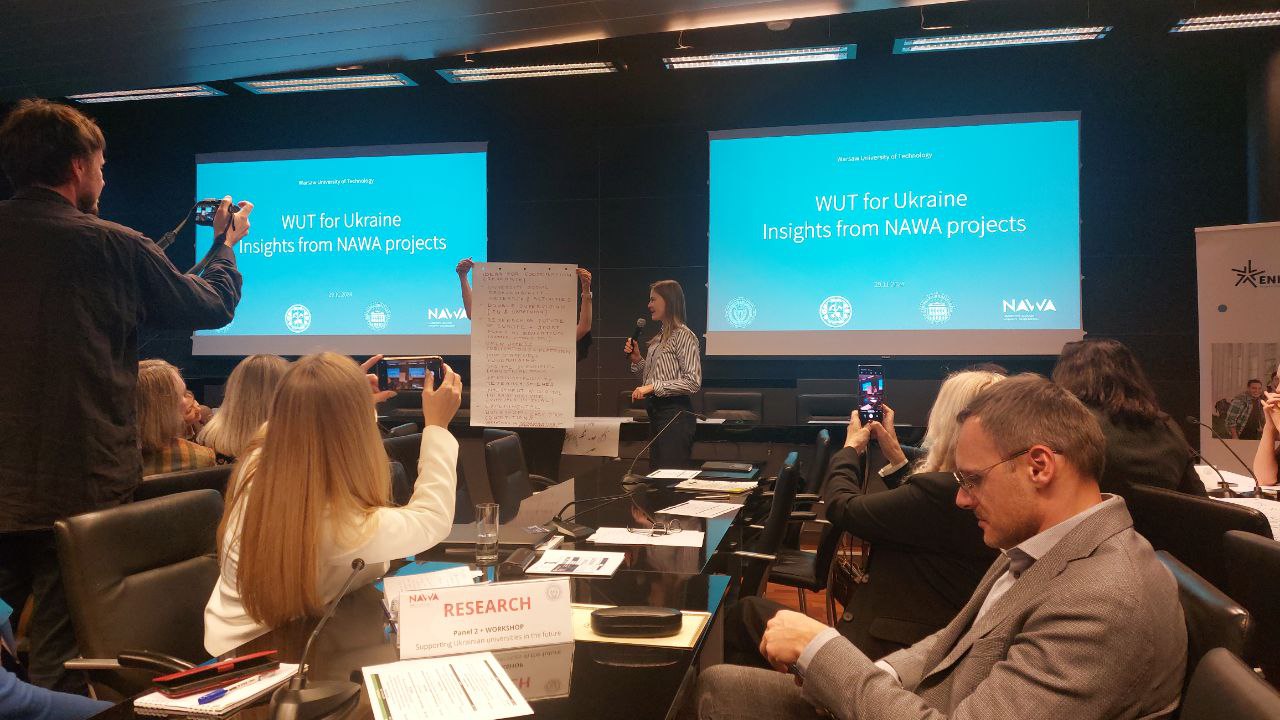As part of a business trip from November 28 to 30, 2024, Valentyna Motronenko, Deputy Dean for Educational and Methodical Work, participated in the conference “WUT for Ukraine – Insights from NAWA Projects”, which took place at the Warsaw University of Technology (Warsaw, Poland). During the conference, the results of the cooperation between the Warsaw University of Technology, Lviv Polytechnic National University, and Igor Sikorsky Kyiv Polytechnic Institute within the framework of the NAWA ENHANCE project were discussed.
One of the key components of the event was a workshop aimed at finding ways to implement future scientific projects in various fields such as science, education, mobility, and innovation. As a result of the group discussions, several promising ideas for fostering international cooperation in these areas were presented.
After the official part of the conference, colleagues from the Warsaw University of Technology took the participants on a tour of the university campus and laboratories. They shared information about the university’s structure, educational process, and the specifics of faculty and student work.
Special attention was given to the organization of part-time education. This format allows students to combine their studies with professional activities and actively engage in scientific work. Students attend several in-person sessions during the semester, which enables them to effectively balance education and work commitments.
Innovative approaches to defending qualification works were also discussed, with each student having an individual defense schedule. This allows for the consideration of the unique aspects of each student’s research, ensuring a comfortable and productive environment for completing their qualification works.
The discussions also touched on the prospects for further cooperation in the fields of biosafety and bioengineering, particularly through the development of joint master’s programs and the creation of shared research laboratories. Such cooperation would allow students and scientists from both universities to work effectively on current issues related to biosafety, including the development of safe biotechnologies, bioterrorism prevention, and improving laboratory safety protocols.
Thus, participation in the conference and meetings with colleagues from Warsaw became an important step in enhancing international scientific and educational collaboration and preparing new joint projects in biosafety and bioengineering.



